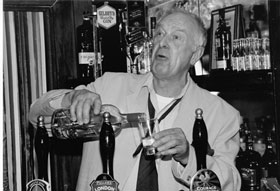JEFFREY BERNARD IS UNWELL
By Keith Waterhouse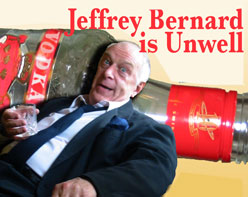
(Playwright, England, Born 1929)
Keith Spencer Waterhouse was born and educated in Leeds. A journalist, novelist, and dramatist, he enjoyed considerable success with his second novel, ‘Billy Liar’, a regional comedy about a youth who attempts to escape his dull family life through fantasy. The story was adapted for the stage in collaboration with W Hall (1960). Other novels include ‘Billy Liar on the Moon’ (1976), ‘Office Life’ (1978), ‘Maggie Muggins’ (1981), and ‘Unsweet Charity’ (1992). Waterhouse and Hall collaborated on many stage, screen, and television plays, adaptations, and musicals, including the film ‘Whistle Down the Wind’ (1961). He also wrote the screenplay of Stan Barstow’s ‘A Kind of Loving’ (1960). ‘Jeffrey Bernard Is Unwell’ (1989) was Waterhouse’s successful adaptation for the stage of Bernard’s Spectator columns. ‘City Lights’ (1994) is the first part of his autobiography. His long-running newspaper column, now appearing in the Daily Mail, has six times won major press awards.
A portrait of a man –
Warts, Vodka bottle and all
“I was sired by a scenic designer who was himself by a theatrical impresario out of an actress. My dam was a singer by an itinerant pork butcher out of a gypsy.” Thus Jeffrey Bernard’s form-book description of his parentage. In fact, by the time Jeffrey was born in 1932, the youngest of four children, his father had become a successful architect, responsible for the Art Deco interiors of the Lyons corner House restaurants. His mother was an opera singer before four children curtailed her career. In later life, Bernard said of his mother,” She looked like a cross between Maria Callas and Ava Gardner, and I fancied her so much it nearly drove me bonkers.” When Jeffrey was seven, his father died leaving his family penniless. His mother shamelessly cadged money to keep her three sons at private schools. Jeffrey left the naval college at Pangbourne at sixteen, just before he was expelled. His brother Bruce introduced him to an entirely different world, and one where he became increasingly at home the Soho of the late forties “like walking out of Belsen into Disneyland.”
He got by, scraping a living, by taking part-time jobs of any kind and scrounging off rich, old homosexuals. He had already started to become hooked on the adrenaline rush of gambling when he was conscripted into the army as a tank driver. On his first leave he went AWOL, staying on the run for four months before giving himself up to the military police. Not long after he faked a suicide attempt and was demobbed in 1951 for mental instability.
The following month he bumped into the girl he had lost his virginity to four years earlier, Anna Grice. They were married within two weeks and separated after four months. In the fifties Bernard spent most of his time in Soho, moving from one short lived job to another, begging stealing and borrowing, often from the many celebrities, poets, painters, philosophers, who frequented Soho at that period. Some of his friends even paid for him to go to film school in Paris, but he dropped out after two days.
After his first wife committed suicide, Bernard married Jacki, a promising young actress he met whilst working at the Old Vic as a stagehand, in 1959. Although at the start both funding and participating in her husband’s drunken sprees (which cost him his job at the Old Vic), by 1962 Jacki had had enough and she threw Bernard out. The divorce cited her infidelity, although both partners had been consistently unfaithful to each other. Also at this time Bernard made the first of his many suicide attempts, none of which came anywhere close to success.
Then followed a period of exploiting his friendships with the rich, famous and infamous until in 1964, a hard drinking friend, Elizabeth Smart, gave him a job doing the racing column for Queen. However, Bernard’s drinking and occasional gestures towards self-destruction tended to interfere with his writing. In 1965 came his first attack of acute pancreatitis; he ignored his doctor’s advice to give up drinking.
The following year he married for a third time. A 23 year old clothes designer, Jill Stanley. This marriage, although “open”, survived for seven years and produced Bernard’s only child, a daughter, Isabel. Possibly due to a more settled life in a Suffolk cottage (although interspersed with frequent trips to Soho), Bernard began to get more journalistic work and, in 1970, got the first full-time job of his life, writing a racing column for Sporting Life. The column was an overnight success, probably because he was the first person to write from a punter’s point of view. However, after a year he was sacked for repeated drunkenness, and especially for being sick in front of the Queen Mother and passing out when he was due to make a speech. Three months in an alcohol and drug addiction unit followed, but Bernard went straight back to his former habits.
Jill finally left him in 1973 and he reverted to drifting from woman to woman and from flat to flat. Illness became a recurrent theme in his life (he was now in his early forties), and he once spent the New Year at the Royal Free Hospital “where they told me I might have to be put down”. His ruined pancreas caused him to develop diabetes, but he hated being teetotal; “I’ve never met such boring people as my friends when I’m sober, never been so miserable or so lonely”. His sobriety lasted two and a half years, and it was then he began to frequent the Coach and Horses, a pub in Soho run by Norman Balon. Fortunately, writing work continued to come Bernard’s way, from the Express, Men Only (for whom he wrote a column entitled Bedtime with Bernard, then in 1978 Private Eye gave him a column on racing. In the same year he met and married Sue Ashley, a 29 year old producer of television commercials. Sacked by the Express for unreliability and a one-track mind, the Spectator gave him a column called “Low Life” which, with its alternative title of A suicide note in weekly instalments”, became a massive popular success probably because, said Bernard, “people like to read about someone who is deeper in the shit than they are”.
Bernard’s health continued to deteriorate, he was arrested for a dew minor ofences, invited to the CID Christmas Party and had his last real love affair, with Deidre Redgrave. Lawsuits of various kinds were weathered, both those against him and those instigated by him. Then in 1988, Keith Waterhouse suggested a play about Bernard’s life. John Hurt, an old friend of Bernard’s, turned down the part, but Peter O’Toole not only cancelled other engagements, but invested £20,000 in the project himself – Norman Balan invested £500. The success of the play made Bernard nationally famous; he was invited on Dessert Island Discs, where Sue Lawley shrewdly produced a bottle of vodka as he sat down, and Michael Corkrey painted his portrait, which hung for a while in the National Portrait Gallery. Financially, the taxman eventually took 80% of Bernard’s share of the play’s profits whilst, ironically, the Apollo Theatre, the West End venue for Jeffrey Bernard is Unwell took record profits at the bar.
Sickness brought on by his lifestyle and long-term devil-may-care attitude to its consequences began to loom ever larger in Bernard’s life. Although he had kept his good looks until about the age of fifty, he became physically somewhat grotesque towards the end – a columnist in the Evening Standard even ran two photos of him, taken 25 years apart, as evidence of the effects of excessive drinking. In 1994 he lost the bottom half of his right leg through diabetic gangrene and his death, in September 1997 at the age of 65, was a result of his refusal to undergo any further kidney dialysis treatments. Whatever posterity may make, or has made of Jeffrey Bernard – ‘the country’s most famous lounge lizard, an object lesson in dissolution, the subject of television programmes, and a block busting play, a shrewd and fearless observer of life, his own and others’ – maybe we should end with the picture conjured up by Peter O’Toole when he visited his friend Jeffrey Bernard in the Middlesex Hospital after his amputation.
CAST
 Having established a successful career in TV and theatre in his native Australia, Kevin came to London in 1965 and took the role of Robert Browning in the world premiere of Robert & Elizabeth (Lyric) followed by Cabaret (Palace) with Judi Dench. His films include Khartoum, Star, Nightwatch, Hope Machine, Trapped In Space and Brushstroke.
Having established a successful career in TV and theatre in his native Australia, Kevin came to London in 1965 and took the role of Robert Browning in the world premiere of Robert & Elizabeth (Lyric) followed by Cabaret (Palace) with Judi Dench. His films include Khartoum, Star, Nightwatch, Hope Machine, Trapped In Space and Brushstroke.
Television series include Man At The Top, Spytrap, First Among Equals, The Woman He Loved, Poor Little Rich Girl, Executive Stress, Crossroads, Law Of The Land, Police Rescue and Dance To The Music Of Time.
Plays include The Glass Menagerie, Hamlet, A Thousand Crowns, Who’s afraid Of Virginia Woolfe, After The Fall, Eccentricities Of A Nightingale, Sleuth and The Destiny Of Me.
Musicals include originating roles in the world premiere productions of Queenie (Comedy), Two Cities (Palace), Follies (European Premiere), Chess (Prince Edward), Aspects Of Love (London Prince Of Wales, Broadway Tony Nomination, Australia Variety Club Award), Sunset Boulevard (Sydmonton Festival), Children Of Eden (Prince Edward), Maddie (Lyric), Bronte (Redgrave) and Jekyll (Churchill). Kevin recently played Daddy Warbucks in Annie (Victoria Palace and national tour) and appeared in the Cardiff International Festival in Babes in Arms and Jubilee. Lately Kevin has been involved in developmental workshops of five new musicals which he hopes will one day be seen in the West End.
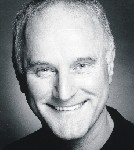 Theatre includes President Roosevelt in Annie (Victoria Palace and national tour), Arthur Miller in I Accept My Life, Seth Lord in The Philadelphia Story and Thomas Putnam in The Crucible (Royal Exchange Manchester), Ted Dallow in Brighton Rock (West Yorkshire Playhouse), Richard Duke of York in Henty VI Part III (London Shakespeare Workout Pentonville Gaol), Titus Andronicus in Titus Andronicus, Ray Say in The Rise And Fall Of Little Voice (Octagon Theatre, Bolton), Atticus Finch in To Kill A Mockingbird, Roberto Miranda in Death And The Maiden (Northcott Exeter), Tom McKenzie in The Seven Year Itch (Playhouse Watford) and Joe Boyd in Damn Yankees (Bridewell).
Theatre includes President Roosevelt in Annie (Victoria Palace and national tour), Arthur Miller in I Accept My Life, Seth Lord in The Philadelphia Story and Thomas Putnam in The Crucible (Royal Exchange Manchester), Ted Dallow in Brighton Rock (West Yorkshire Playhouse), Richard Duke of York in Henty VI Part III (London Shakespeare Workout Pentonville Gaol), Titus Andronicus in Titus Andronicus, Ray Say in The Rise And Fall Of Little Voice (Octagon Theatre, Bolton), Atticus Finch in To Kill A Mockingbird, Roberto Miranda in Death And The Maiden (Northcott Exeter), Tom McKenzie in The Seven Year Itch (Playhouse Watford) and Joe Boyd in Damn Yankees (Bridewell).
Television includes New Tricks, Kings Of The Ghetto, Eastenders, Coronation Street, Emmerdale, Bergerac, Peak Practice, The Ruth Rendell Mysteries, In suspicious Circumstances, Unsolved Mysteries, Wycliffe, Casualty, Holby City and Jack the Ripper in Lulu (All The World’s a Stage).
Film includes Wilde, Beautiful People, Young Soul Rebels, Killing Time and Nikolai.
Radio includes The Devil’s Province, A Vital Flaw, Other People and Lieutenant Brannigan / Narrator in Guys And Dolls.
 Susan recently graduated with distinction from the postgraduate musical theatre course at the Royal Academy of Music. While she was there her roles included Mrs Sullen in The Beaux Stratagem and Sally Bowles in Cabaret. Theatre credits include Audrey in Little Shop of Horrors (Upstairs at the Gatehouse), Annie in Shadowless (Bridewell), Millamant in The Way Of The World (Pentameters) and Gwendolyn in The Importance Of Being Earnest (Upstairs at the Gatehouse). At the Richmond theatre and on tour Susan played Lucy in The Threepenny Opera (The Opera Group.) In South Africa Tuptim in The King and I, Collette in La Cage Aux Folles, Joseph And His Amazing Technicolor Dreamcoat (State Theatre South Africa). In addition to her performing, Susan is also a producer. Her first production, Alan Ayckbourn’s How The Other Half Loves, played Upstairs at the Gatehouse, prior to a tour of the Middle East. Subsequent productions include the UK premiere of the Neil Simon’s London Suite, and Alan Ayckbourn’s Relatively Speaking, which also toured with great success.
Susan recently graduated with distinction from the postgraduate musical theatre course at the Royal Academy of Music. While she was there her roles included Mrs Sullen in The Beaux Stratagem and Sally Bowles in Cabaret. Theatre credits include Audrey in Little Shop of Horrors (Upstairs at the Gatehouse), Annie in Shadowless (Bridewell), Millamant in The Way Of The World (Pentameters) and Gwendolyn in The Importance Of Being Earnest (Upstairs at the Gatehouse). At the Richmond theatre and on tour Susan played Lucy in The Threepenny Opera (The Opera Group.) In South Africa Tuptim in The King and I, Collette in La Cage Aux Folles, Joseph And His Amazing Technicolor Dreamcoat (State Theatre South Africa). In addition to her performing, Susan is also a producer. Her first production, Alan Ayckbourn’s How The Other Half Loves, played Upstairs at the Gatehouse, prior to a tour of the Middle East. Subsequent productions include the UK premiere of the Neil Simon’s London Suite, and Alan Ayckbourn’s Relatively Speaking, which also toured with great success.
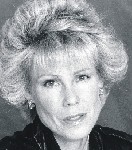 Carola trained at the Webber Douglas Academy and made her debut in Look Back In Anger (Derby Playhouse). West End credits include Strippers (Phoenix), When Did You Last See Your Trousers? (Garrick), Jeffrey Bernard Is Unwell with Peter O’Toole (Old Vic), Stepping Out (Albery). Other London Credits include Florence Lancaster in The Vortex (King’s Head), Aristophanes’ Wealth (Croydon Warehouse), Frannie Brewer in Anniversary Suite (Finborough), A Clockwork Orange for John Godber (Man In The Moon) and last year The Cherry Orchard (Wimbledon) followed by Venom (Soho Theatre).
Rep Work includes Mrs Prentice in What The Butler Saw (Portsmouth New Theatre Royal), Party To Divorce (Leatherhead), Olivia in Twelfth Night (Leicester), Time And Time Again (Derby), Steaming (Hornchurch), Cabaret (Theatre Clywd), Alice In Wonderland (Birmingham Rep), Me And My Girl (Eastbourne), Romaine Vole in Witness For The Prosecution (Swansea).
National tours include Godspell for Cameron Mackintosh, Buffy in Strippers, Berkoff’s Greek, You Must Be The Husband with Tim Brooke-Taylor and Wife Begins At Forty opposite David Roper. On the Isle of Man she played in Seaside Romp with Jack Douglas and Mollie Sugden.
Carola created the role of Ishmael in Moby Dick The Musical and has sung in cabaret with Fascinating Aida at the Dorchester.
Television includes Wedekind’s Lulu for BBC2 with Peter Harding, Comedy Wavelength opposite Josie Lawrence, Grange Hill and most recently Monica Lewinsky’s agent in Airtime!
Carola trained at the Webber Douglas Academy and made her debut in Look Back In Anger (Derby Playhouse). West End credits include Strippers (Phoenix), When Did You Last See Your Trousers? (Garrick), Jeffrey Bernard Is Unwell with Peter O’Toole (Old Vic), Stepping Out (Albery). Other London Credits include Florence Lancaster in The Vortex (King’s Head), Aristophanes’ Wealth (Croydon Warehouse), Frannie Brewer in Anniversary Suite (Finborough), A Clockwork Orange for John Godber (Man In The Moon) and last year The Cherry Orchard (Wimbledon) followed by Venom (Soho Theatre).
Rep Work includes Mrs Prentice in What The Butler Saw (Portsmouth New Theatre Royal), Party To Divorce (Leatherhead), Olivia in Twelfth Night (Leicester), Time And Time Again (Derby), Steaming (Hornchurch), Cabaret (Theatre Clywd), Alice In Wonderland (Birmingham Rep), Me And My Girl (Eastbourne), Romaine Vole in Witness For The Prosecution (Swansea).
National tours include Godspell for Cameron Mackintosh, Buffy in Strippers, Berkoff’s Greek, You Must Be The Husband with Tim Brooke-Taylor and Wife Begins At Forty opposite David Roper. On the Isle of Man she played in Seaside Romp with Jack Douglas and Mollie Sugden.
Carola created the role of Ishmael in Moby Dick The Musical and has sung in cabaret with Fascinating Aida at the Dorchester.
Television includes Wedekind’s Lulu for BBC2 with Peter Harding, Comedy Wavelength opposite Josie Lawrence, Grange Hill and most recently Monica Lewinsky’s agent in Airtime!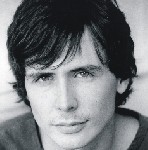 Theatre includes: Bertram in London Suite (UK Premiere and tour of Gulf), Caulfield in Funeral Games (Pentameters), The Secret Arch, Catesby in Richard III, Le Chavalier Danceny in Les Liaisons Dangereuses, Algernon in The Importance of Being Earnest, and Nikolai in Platonov (Upstairs at the Gatehouse), The Hunting Of The Snark, Kip’s War, The Caretaker, Follow the Man from Cooks and Animal Farm (Leicester Haymarket), Jesus Christ in Bad Omens (Edinburgh and London), Terry in Matchstalk Man (Bedlam Theatre Edinburgh), Romeo in Romeo & Juliet and The Unicorn (Venue 49 Edinburgh Festival).
Theatre includes: Bertram in London Suite (UK Premiere and tour of Gulf), Caulfield in Funeral Games (Pentameters), The Secret Arch, Catesby in Richard III, Le Chavalier Danceny in Les Liaisons Dangereuses, Algernon in The Importance of Being Earnest, and Nikolai in Platonov (Upstairs at the Gatehouse), The Hunting Of The Snark, Kip’s War, The Caretaker, Follow the Man from Cooks and Animal Farm (Leicester Haymarket), Jesus Christ in Bad Omens (Edinburgh and London), Terry in Matchstalk Man (Bedlam Theatre Edinburgh), Romeo in Romeo & Juliet and The Unicorn (Venue 49 Edinburgh Festival).
Film & Television includes The Hippy Guy and Mime Artist in Welcome to Ibiza for Alpha Beta International. Lip Service and Section Six (YMCA Surrey Film Institute), and The Collective for Channel 4.
Mark has also written several stage plays and film scripts.
CREATIVES
Alex has worked in both the UK and South Africa in Theatre, Television and Film. Directing credits include: Most recently the UK premiere of Neil Simon’s London Suite starring Christopher Cazenove, Matchstalk Man at the Bedlam Theatre Edinburgh, Les Liaisons Dangereuses, A Chorus of Disapproval, How the Other Half Loves, The Secret Arch, Cowardy Custard, The Wordsmith’s Lament and Relatively Speaking all Upstairs at the Gatehouse London, Funeral Games and The Way of the World at the Pentameters London, A Midsummer Nights Dream as an open air production in Johannesburg, and last year’s production of Ultimate Islands first at Famous Grouse House and subsequent transfer to Dynamic Earth, Edinburgh which received a fringe first nomination. Also transferred How The Other Half Loves, Relatively Speaking and London Suite to Bahrain and Abu Dhabi for a limited tours this year with producer Susie Harriet.
He has worked as assistant to Royal Shakespeare Company director John Barton in New York on a new film version of Playing Shakespeare for PBS. Last year he worked as Production Designer on the location Feature film Welcome to Ibiza for Alpha Beta International and this year as Production Designer on the sci-fi thriller Parasite for Fearnort Films and Rebellion 2000AD. Recently he completed a documentary The Show Must Go On with Sensation Pictures for PACT which has just been aired in the Houses of Parliament. Alex is currently working as an associate producer on two feature films for London and Bulgaria. He has produced over 25 productions for Tenth Planet Productions and designed over 20 since graduating from Mountview in July 1997. He has also worked extensively both here and abroad as an actor.
Katy studied Theatre Design at Nottingham Trent University. While there she designed Macbeth in conjunction with Nottingham Playhouse. After graduating Katy worked at The Mill at Sonning Theatre, designing Outside Edge, Sylvia’s Wedding and Relatively Speaking. Freelance work comprises of Ruffian on the Stair and Funeral Games (Pentameters Theatre), Eclipsed (Riverside Studios) and work with Streets Alive Theatre Company in London and Ghana. Seven shows for Stagedoor Manor New York including Playing For Time, Merrily We Roll Along, 42nd Street and The Boyfriend. Other designs include Sweet Charity (Watford Palace Theatre) and Molly Malone (Riverside).
Katy has designed six shows for Upstairs at the Gatehouse including London Suite, The Wordsmith’s Lament, Daydream Believer, A Slice Of Saturday Night, How The Other Half Loves, Duck Variations and Squirrels. Film work includes Production Designer on Parasite (Fearnort Films), design assistant on The Forthsyte Saga (Granada TV) and currently for the BBC on a variety of projects including The Saturday Show and Paradise Heights.
PHOTOS
REVIEWS
Designers Katy Tuxford and Carolyn Wilson are the first people who should be praised for the set of this production, which is as realistic a pub as can be seen on the stage. So intent are the audience on admiring it upon entering the theatre they fail to notice the body of a man slumped on the floor beneath a table.
So begins the production of Keith Waterhouse’s award-winning play based on the life of four-times married journalist, alcoholic and gambler Jeffrey Bernard. The script – the true star of the show – is hilarious and tight, keeping the audience’s attention even during the opening cough which must stretch five minutes.
For this show to work, the actor taking on the role of Bernard has to have considerable skill. Fortunately Kevin Colson is more than able. His booming voice strikes the right tone between hilariously funny memories – including some classic one liners – and sad realism of the life of an alcoholic gambling addict.
Supporting players Peter Harding, Susan Harriet, Carola Stewart and Mark Underwood are all impressive, with Harding standing out, especially in the scene when – desperate for something to bet on when the racing is cancelled due to weather – Bernard and two friends race their own cats.
Director Alexander Holt lets the script do most of the work but there are pleasing entrances and exits utilising every inch of the wonderful set. All in all, an extremely moving and entertaining evening and a must-see show.




